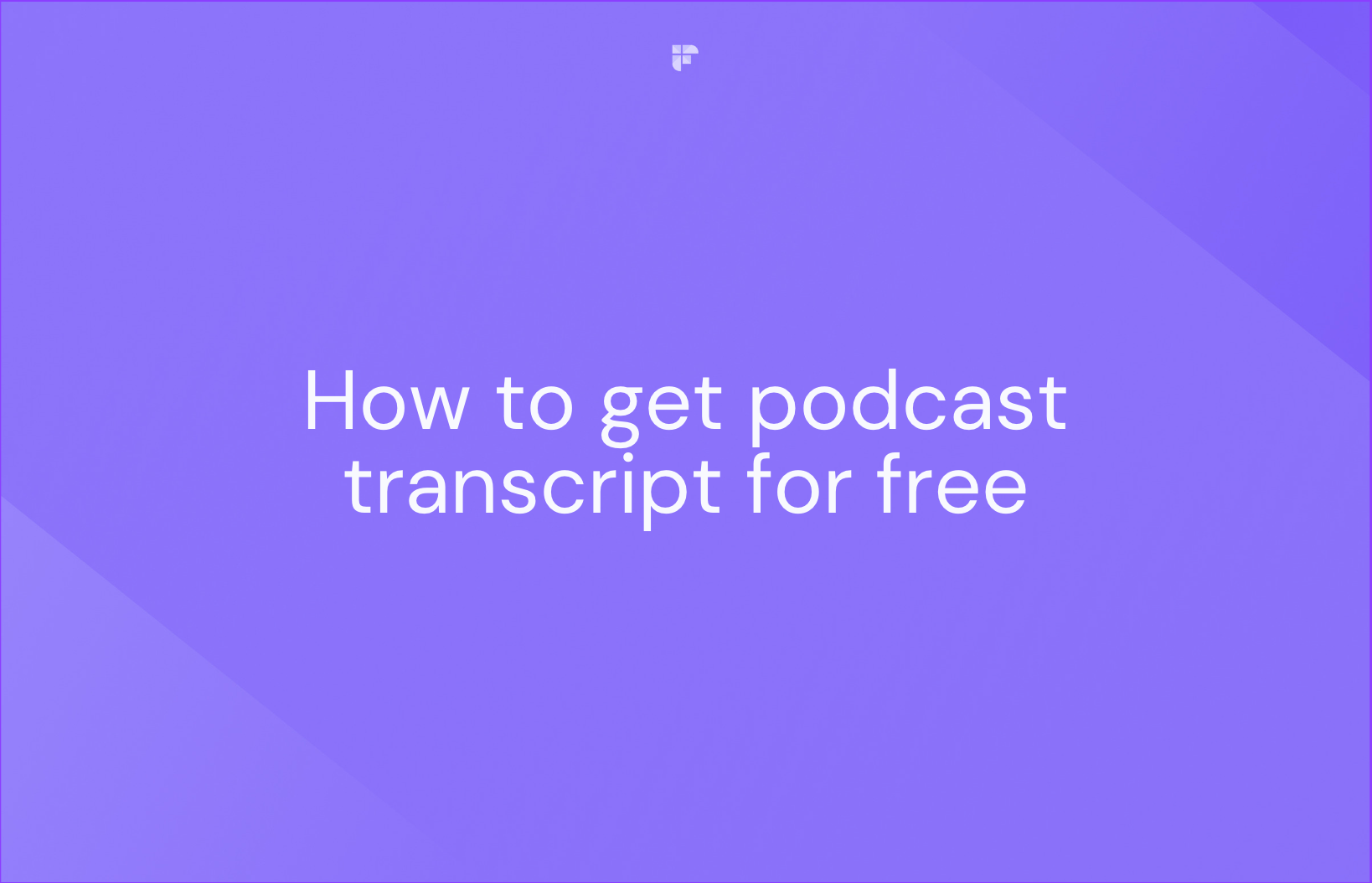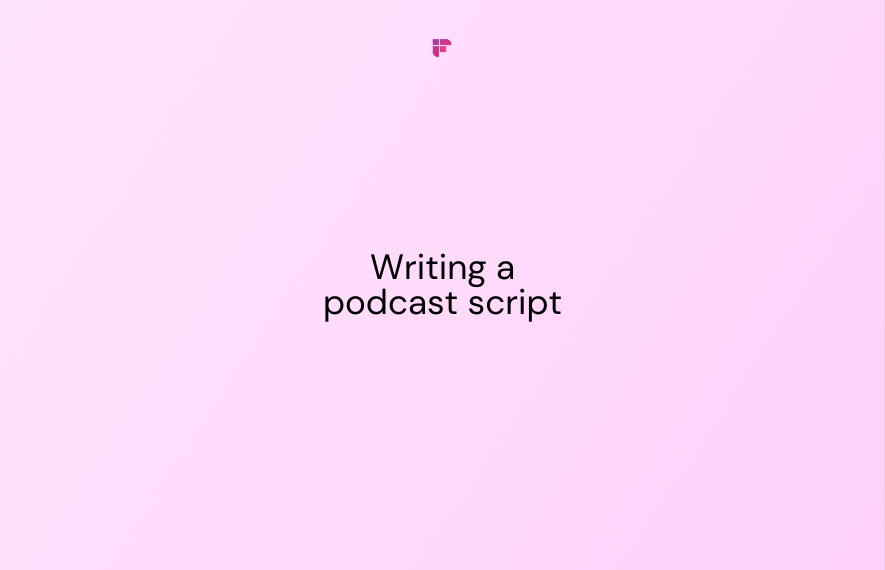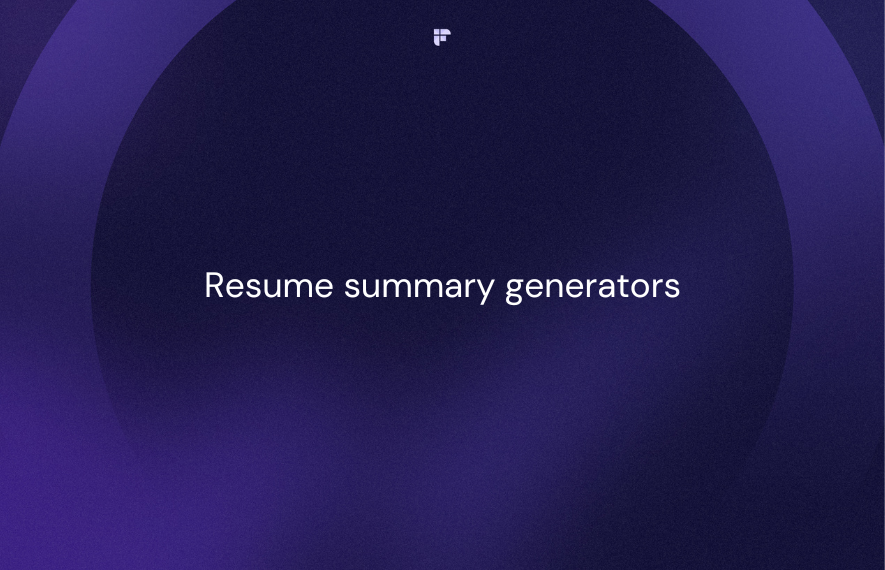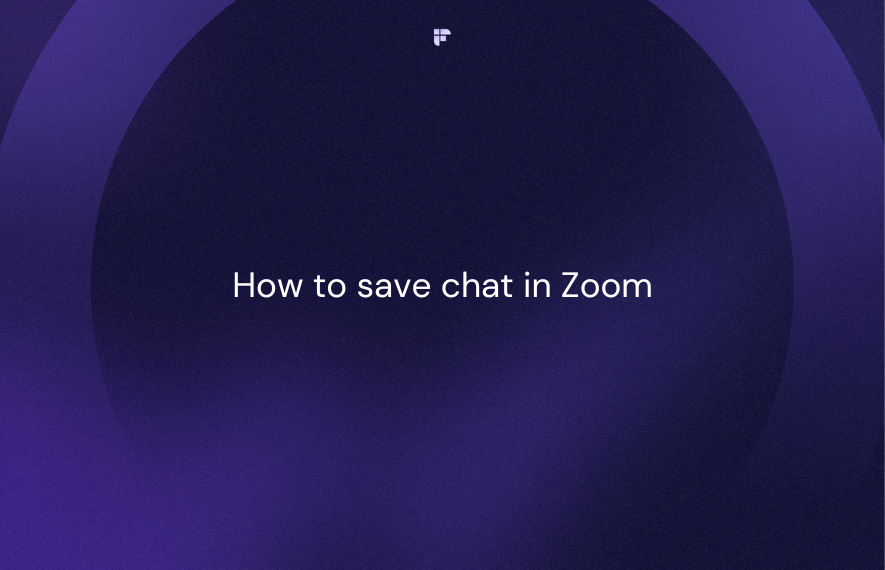Ever wondered how some podcasts effortlessly capture your attention while others fall flat?
The secret lies in a well-crafted script.
Whether you're a seasoned podcaster or just starting out, mastering the art of writing a podcast script is crucial.
In this ultimate guide, we'll unravel the secrets behind creating captivating episodes that leave your audience wanting more. Get ready to transform your podcasting journey with expert tips and techniques.

The importance of a podcast outline
Imagine your podcast as a thrilling journey and the podcast outline as your trusty roadmap.
A podcast outline provides structure, clarity, and conciseness to your episodes. With a well-crafted script, you can focus on the present moment without worrying about filling recording time. It's like having guardrails that keep your show on track while allowing room for spontaneity.
You decide the level of detail based on your show's style and preference. Scripts bring peace of mind, maintain consistency, and even reduce editing time by avoiding off-topic tangents.

Podcast outline elements
Let's break down the key elements that make up a podcast script:
1. Intro
Start with a warm podcast intro that welcomes listeners, shares your podcast name, and includes a catchy jingle or intro music. You can add the podcast theme, guest names, and the episode topic for extra impact.
2. Guest intro (if applicable)
Before diving into the interview, provide your guest with a well-crafted introduction that highlights their expertise and why listeners should pay attention. Double-check their bio and information for accuracy during the scripting process.
3. Segue
Smooth segues are essential for a seamless podcast flow. Use sound effects, transitional phrases, or music jingles to mark transitions between different segments or topics.
4. Sponsor message
If you have sponsors, they may provide a script or talking points for you to deliver. Customize the message to fit your podcast's style while maintaining the sponsor's intent.
5. Outro
Wrap up your episode with an outro. Consider providing a brief summary or recap, expressing gratitude to your guests and listeners, and offering a teaser for the next episode. Include a call-to-action, such as asking listeners to leave reviews, engage on social media, or explore show notes.
6. Credits
Don't forget the credits. If you have editors or producers involved, acknowledge their contributions before signing off. You can read the credits while playing outro music or include a few seconds of music after the credits to conclude the episode.

Writing a podcast outline
Crafting a podcast outline is fundamental in organizing your thoughts and structuring your episode effectively. Here's a simple guide on how to write a podcast outline:
1. Introduction
- Grab attention with a captivating opening line or anecdote related to the episode topic.
- Introduce yourself and your podcast briefly.
- Clearly state the episode's main topic or question.
2. Background or context
- Provide necessary background information or context to set the stage for the discussion.
- Explain why the topic is relevant or essential to your audience.
3. Key point 1
- Present the first main idea or argument related to the topic.
- Provide supporting evidence, examples, or statistics to strengthen your point.
- Share personal experiences or stories that illustrate the concept.
4. Key point 2
- Introduce the second major idea or argument, building upon the previous point or transitioning to a related aspect of the topic.
- Support this point with relevant evidence, research findings, or expert opinions.
- Use storytelling techniques or real-life examples to make the content relatable.
5. Discussion/interview
- If applicable, engage in a discussion or conduct an interview with a guest.
- Prepare a list of questions or discussion prompts related to the topic.
- Allow for organic conversation while ensuring the focus remains on the main topic.
6. Closing thoughts
- Summarize the main points discussed in the episode.
- Share your personal insights, opinions, or takeaways from the topic.
- End with a memorable closing statement.
7. Outro
- Thank your audience for listening and express gratitude for any guest contributions.
- Mention upcoming episodes or tease future content to keep listeners engaged.
- Encourage listeners to leave feedback and reviews or engage with you on social media.

3 Podcast outline templates to get you started
Kick off your podcast journey with these three templates!
1. Solo show podcast outline
When hosting a solo show, prepare your content in advance and avoid the need to gather your thoughts during recording.
Once these main points are identified, the finer details can naturally follow. Here's a sample outline you can use:
2. Hook or Opening Statement
3. Main Topic Discussion
4. Personal Reflection or Storytelling
5. Practical Tips, Strategies, or Actionable Advice
6. Q&A or Listener Questions (if applicable)
7. Final Thoughts and Conclusion
8. Outro and Closing Remarks
2. Co-hosted podcast outline
If you have multiple hosts in your podcast, use a loose script to ensure everyone can share their talking points without interruptions.
Mapping out just the main segments allows for a natural flow of conversation.
2. Opening Banter or Icebreaker
3. Main Topic Discussion
4. Debate or Discussion Segment
5. Guest Interview (if applicable)
6. Audience Interaction or Listener Questions
7. Personal Recommendations or Favorites
8. Closing Thoughts and Conclusion
9. Outro and Closing Remarks
3. Interview-based podcast outline
When it comes to interviews, podcast scripts are a game-changer. They not only boost your confidence but also put your guests at ease.
And here's a pro tip: share those questions with your guest ahead of time to stay on the same page throughout the episode.
2. Icebreaker or Personal Connection
3. Background and Introduction
4. Main Interview Questions
5. Follow-up Questions and Probing
6. Audience Questions or Listener Feedback (if applicable)
7. Closing Segment
8. Outro and Closing Remarks
Generate podcast transcript and closed captions with Fireflies
Done recording your podcast and want a written transcript to upload along with the audio? Fireflies.ai is all you need.
Easily transform your podcast audio files into transcripts within minutes. Enhance the discoverability and SEO of your website by adding these transcripts. Alternatively, allow your audience to read along while listening by uploading the transcripts.
Try Fireflies for free!
Accessibility is key, so why not share a link to the Fireflies transcript? Your viewers can access the audio and transcript together, even at 2x speed.
It's all about making your content more accessible and engaging for everyone.







